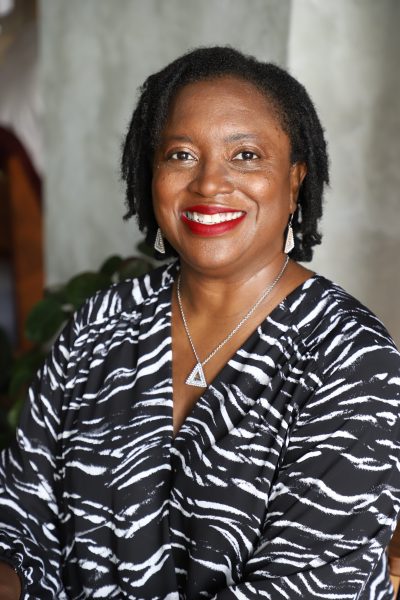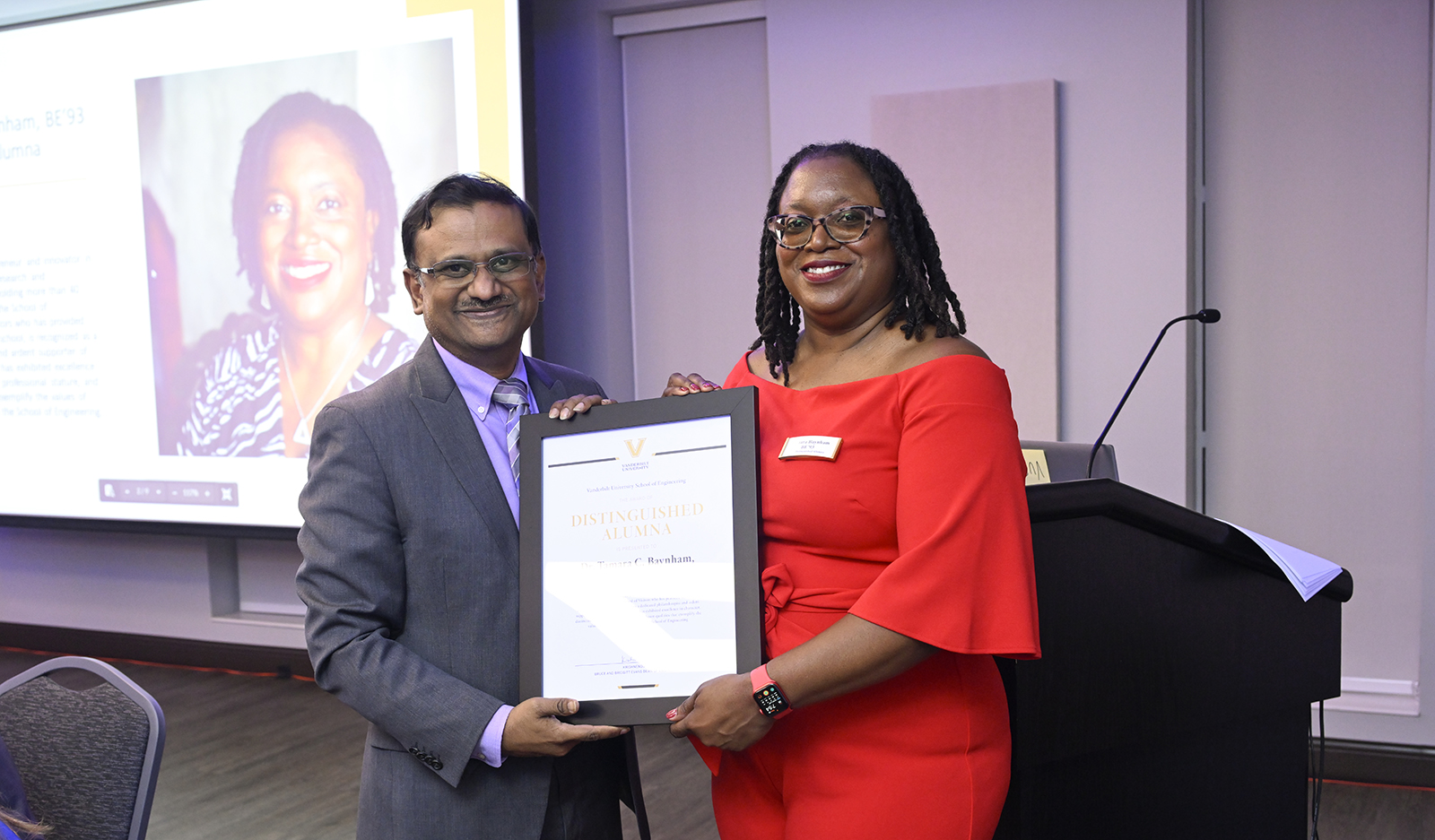Tamara Baynham, BE’93, who is from a small town just down the interstate from Nashville, decided to attend Vanderbilt to study biomedical engineering. Her choice was validated when she met two Black faculty members in her program who held doctoral degrees—a rarity in 1990—Noah Horace Mann III, BS’84, and Joe Alexander Jr., who did his medical residency at Vanderbilt University Medical Center in the early 1990s.
“Having them as a window into possibility was instrumental in changing my life, because I never knew that I could do that,” Baynham says.
Additionally, a summer minority engineering program provided her and fellow students with a window into what to expect as students and professionals. It established a sense of community—they studied together, participated in activities together and supported each other until they graduated, and beyond.

Today, Baynham is an active, long-standing alumni leader across the university, including leadership roles as president of the Association of Vanderbilt Black Alumni and member of Vanderbilt Alumni Association Board and of the Engineering Board of Visitors. She led her 1993 Reunion Class to win the Reunion Cup for philanthropic support to the university. She also mentors Vanderbilt students, is a dedicated, consistent donor and recently became a class agent to encourage more alumni to engage in meaningful ways.
“It’s really important to me, in my work with AVBA, to encourage other Black alumni to be role models. The students need to see us and know they’re part of a larger community,” she says.
Baynham’s impact has been recognized. In April, she was inducted into the School of Engineering’s Academy of Distinguished Alumni, and she received an alumni volunteer award for her efforts in 2020.
Vanderbilt’s culture amplified Baynham’s love for science and illuminated pathways to achievement. After completing her Ph.D. at the University of Alabama–Birmingham, her career led from the classroom to the clinic to the laboratory, where she eventually applied her knowledge to therapies for heart disease, obesity and neurological disorders.
She holds more than 50 patents for products that advance patient care. As founder and principal consultant of Nashville-based Ingenuity Medical Device Research, which she launched in 2013, Baynham has helped fellow inventors design therapies that use technology to solve some of our greatest health challenges and navigate the patent process—a continuation of the culture of innovation and community she found at Vanderbilt.
As positively as she views her own experience, she is excited about advancements in the biomedical engineering curriculum.
“There’s a lot of emphasis on innovation and entrepreneurship that was not available then. Having the Wond’ry would have been a dream,” she says. As a Wond’ry mentor, Baynham will be able to witness growth and impact of programs designed to nurture both innovation and community.
“I want to make sure that the school stays competitive and improves its standing worldwide. When I graduated, Vanderbilt was more of a regional university, and I am proud to be a part of a university that has evolved into a global force.”
—Connie Harris
